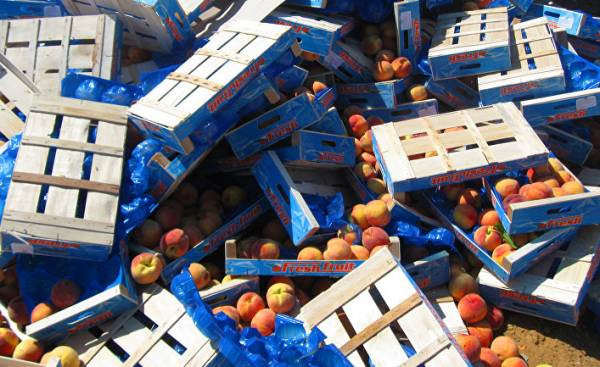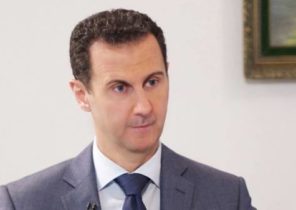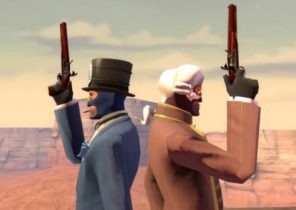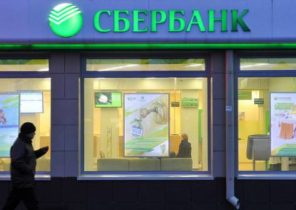
The Russian economy is already not the first year working in the conditions of international sanctions imposed after the annexation of Crimea and the outbreak followed the military conflict in Eastern Ukraine. Disputes about the effectiveness of these sanctions and what effect they have on the development of Russia’s economy, do not subside neither in Russia, nor abroad.
No less discussion, and are also entered Moscow retaliatory “anti-sanctions”. Correspondent Maria Stroeva discussed Aleksey Wedeven, former Deputy Minister of economic development of the Russian Federation, who was responsible for the macroeconomic block and left his post three weeks ago, as these tools impact the financial work and the condition of the Russian economy. Currently, Vedev is Director of the Center for structural research of the Ranepa.
Maria Stroeva: Alex, you worked in the Ministry of economic development from the moment of the imposition of sanctions. Do you think it has had on the Russian economy, and what condition it’s in today?
Alexei Vedev: first, I think we are faced with what is called the perfect storm. With the end of 2014 the economy was influenced by three factors: falling oil prices, sanctions and counter-sanctions, and structural inefficiencies. 2015 was a year of adaptation. I don’t want to talk about the bottom, on this subject, there were a lot of jokes. But in fact the worst quarter was the second in 2015. After that we started to level off. Now the corridor of 50-60 rubles per dollar already sounds fine. And then it was a shock.
The prices do not grow: the population does not want to consume
— Is it possible to identify particularly affected by the imposition of sanctions on sectors of the Russian economy?
— Directly none. To isolate and directly assess today the impact of sanctions and counter-sanctions is very difficult. But indirectly affected all industries, focused on investment demand for final consumer demand. Investment depends on foreign investment and foreign loans. But consumer demand has fallen and the devaluation of the ruble. And people stopped buying cars, household appliances and so on.
Without a doubt, any insulation policy is flawed. You know, they would probably quite easily understood if it was $ 100 per barrel and there was structural problems in the economy. We would then just cleaned up the market, and all. But in fact, even when oil prices were above $ 100, we’re not growing. But investment actually fell. In the last 14 years due to a sharp expansion of domestic demand he was with us 80% was met through imports and price increases. And we have all been branded, and was institutional inflation. That is inflation due to low competitive environment. And now I’m here the last two years every quarter has met with the networks. They’re at the forefront, with them interesting to talk to and to understand what is happening.
— We are talking about Federal retailers?
Yes. Auchan, X5, and so on. And the first thing they say, today, in the face of sharply falling demand, the price increase is equal to the loss of market share. And so, as before prices freely ran forward, now so few people can afford.
For the first time in 25 years fell real incomes. They never fell. And retailers are immediately faced with a very sharp restriction of demand. And naturally react by expanding supply. So on the one hand, returning to the subject of counter — price to increase at the same rate is impossible, the import to affect the expansion of demand is also impossible. So there is the normal reaction in the food industry, in agriculture, the expansion of production.
— Let more. So, if to speak about the end user, especially since you mentioned trade network with a high segment luxury — it’s small, and perturbations affect the least. The main blow assumed average price segment. And, certainly, the consumer is biased towards the low segment. And we offer it was never very wide. Or, if we’re talking about the food industry, is low quality, some ersatz. How manufacturers cope today?
— Well, you will agree that to compete with Polish apples is still possible.
— Of course you can, if you grow and sell your own!
Well, they are all the same. Therefore, some reaction to the replacement goes. And in the fishing industry, too, with the Norwegian salmon…
— What we are opposed to Norwegian salmon?
— Well, we have Murmansk, we have the far East..
— Is. But does the fact that there is produce, the Russian market is a completely different story…
— It’s true, Yes. But still contractee released some niches for manufacturers. We are not talking about growth, let’s say 30%, but still some movement has gone.
— But the sanctions have sharply reduced the competitiveness in the market. Logically, in these circumstances, the manufacturer will raise prices and reduce quality. He and in conditions of high competition due to many circumstances was not very fast and active. And today, it seems, he and there is no need to try very hard.
— Well, that’s why I found it difficult to consider separately the impact of counter-sanctions, for example. Because the price is not growing. People do not want to consume.
— Unable or unwilling?
— No, it doesn’t. Very high level of savings. In January, for example, when the saving rate from 9% to 12%, was 25. That is, the population is very cautious. The decline in real turnover is unprecedented in the last 25 years. I’m not even talking about such obvious things as the purchase of a car. In 2012, purchased three million, in 2016 — less than 1.3 million. The sharp decline. So the prices do not grow.
— Do you think that the reason for caution? If people think that prices will rise and the situation will deteriorate, it would seem logical to buy a new car now while you still can to invest savings. The products you buy today and eat today. This is the last extreme possibility of savings on food.
— I am still inclined to talk about savings model. We for the first time in a long time observed discrepancy: wages are rising and turnover is dropping.
— What wages are rising?!
— Wages are rising. You know, for me it is also a mystery. One of the many.
— And in what industry they grow? Doctors, teachers, policemen — they did not grown.
— A growing manufacturing sector. Financial. And in the economy it turns out that wages are rising. State employees — no. But in some industries by 7-10% and rising wages — it’s fantastic. And for me it is a surprise. I am communicating with the business, not heard of any increases, quarterly bonuses, and so on…
— And then this is taken? It is Gazprom and Rosneft we all overlap?
— Gazprom. Rosneft. Sberbank…
— So that explains it!
In may 2016 the savings Bank by 12% indexed salaries.
— That is, increase the salaries of government giants and monopolies.
Yes. We now have 70% of the economy one way or another owned by the state. And all agree that 30% is the shadow economy. And I joke that 70 plus 30 equals 100.
— What about unemployment in the country?
— It is generally at a historic low! It is today at the level of 5.3% of the global target of 6%. But we have every year 200 to 300 thousand people economically active population is shrinking. Because of the “Christmas tree” demographic. Very slow moving from place to place.
— That is, the mobility of the population remains at zero.
Yes. Very low. Fantastically low. But nevertheless, people retrain, change their qualifications. And the government feared a possible explosion in 2015 — but that didn’t happen. And from the point of view of threats to social stability, unemployment is generally not a topic.
— What is the theme?
— The theme is the decline in real incomes.
And with the consumer basket what is happening?
— It is easier, of course. People move from veal to beef, from beef, to chicken. And another important thing. Fruit and vegetable production last year was deflation. This year she expected. The fall in prices.
— And the reason? Have to buy less or more to produce?
— And then another. But I would say more to produce.
— That is, when the Prime Minister says today for agriculture vistas, is this true?
— It’s true, Yes.
And state infrastructure projects, state programs, tax system and the current pushing all the agriculture of the country to the rapid development?
— No. Not pushing. First, public investment is clearly overvalued rate. Because the total volume of investments of the state today is only 11%. And about 15% is a natural monopoly. But still it is not more than 25%. The rest — private investments. Therefore, my position — state investment should have a large multiplier effect. That is — in infrastructure. And to produce other investments. As for the tax burden, today it’s high. But I’m much more like something that is continuously discussed changing it.
— It is supposed its increase?
— Or change. That’s enough. Very important stable rules of the game. And we have constantly is a tax spam. It is disconcerting and confusing.
What fool would invest in the economy? And “fools” at 15 trillion rubles accumulated
— You are talking about private investments in the Russian economy: who are these people investing today?
— In fact, many of these people. I remember when I presented a forecast for 2016, many people told me that there are idiots who will invest. But in reality, capital investments for the year equal to all budget expenditures. It’s more than 15 trillion rubles. That investment turned out much better than I expected. And investment projects are under way. I went to the regions, seen. Unable Altai Krai to give an example. Sverdlovsk oblast.
— And in which industries to invest?
— In the treatment. In mechanical engineering. You know, I’m in 2013-2014 predicted the crisis of 2015. And not because I foresaw the drop in oil prices, but because they had to adjust wages. We pay was very high. Their share in added value was incredibly high. And indeed, now there is a correction. Plus, the ruble fell by half. For example, the IT industry. If you had all the time discussed the issue of the invitation to the company’s system administrators from India because they are cheaper than our — this problem does not exist. Now the market is relatively cheap, competitive and high-quality work of Russian programmers. And the industry IT is between 7 to 12 billion dollars of exports. And this despite the fact that much of it goes through offshore companies, and export a rather poorly estimated. Engineering is also interested in developing. In Barnaul I saw a very interesting separators, which are cleaned buckwheat. And there are Japanese cameras that make 500 thousand images per second. Now these separators and Germany export. And these things became quite a lot. We already do not have a cast iron pig export.
But the camera in the separators of Japanese.
Yes. There are 30 or 40% imported parts. But not 100%. That is, there is a struggle for localization. At the company of approximately 350 employees, and of course, they can’t substitute everything.
— Speaking of regions. What is happening today with the regional budgets? They’re still up to 2015 has got in such a terrible nosedive that expected defaults.
— The situation when the main burden of social payments went to the regions, and they are forced to borrow money on the market — heavy and predictable. Naturally, when the regional budget is money at 12, or even 15% per annum, the share of funds to service this debt is growing rapidly. This situation was completely predictable. And it brought almost to the limit. And now the Ministry of Finance in the manual mode it is trying to resolve. And this issue is very complicated even from the point of view of economic policy. Turns out: the Altai territory has no debt issues, and we supposed it had something to promote. And the rest, which the debtors, forgiving debts. And then those who did not debt, stay out in the cold. This is a very important problem of regional equity. And in General, it is necessary to revise the policy of public spending. Because just all half cut, all cut and declare that now everything will be half funded, is wrong. I think that it is necessary to invest more, but from something altogether.
— And what you can give up at all today?
— From the presence of the state in the economy. We do very much. I always defend the need for privatization.
— And you think, if by some miracle tomorrow the decision on privatization of some large companies with a decisive share of the state, are they buyers? With those constantly changing rules of the game, expensive borrowed money and the current sanctions?
Is an open question, Yes. Here the first sanctions will complicate the matter. For me it is obvious that the investor has to be external. Because inside is like a cat Matroskin: something to buy, something to sell, and we have no money. Inside there is no money, they never buried. The investor needs to come outside.
— I can add that property in Russia is a very large Convention. And something buying, tomorrow you can very easy to lose it.
— Well, after all it should be noted that, as I said, many assumed that “what fool would invest” in the economy, and “fools” on the 15 trillion roubles were typed. But I think it’s important not only strategic investments but also the creation of public companies. It is not only the culture of communication with minority owners, but also a guarantee of stability. A public company with millions of owners.
The main enemy is the uncertainty. All get scared much faster than the rest
— What sectors of the economy can expect growth?
— I think we can wait for the development of the food industry, agriculture, ferrous and nonferrous metallurgy, and more can be engineering and construction. I mean that you can expect in the event of an increase in investment activity. But with all this we must remember that discussing a possible rise of 2 or 3%. Not 10, not 15, not even 7%.
And this potential growth of 2-3% brings us to what level? 2014?
— Yes, below! So I just wanted to say that this is only a corrective growth. This means that we fell and then slightly wring out. But not even reached the previous level from which he fell.
— And what prevents to grow faster?
— I think in the first place prevents uncertainty. The very low level of Doing Bussiness. And, as a consequence, the absence of an external investor. Yes, and the interior feels insecure. View. We have consolidated the financial results — roughly speaking, profit in 2015 increased by 53%, and in 2016 to 40%. Profit-hoo. But investment is not particularly growing. The reason is the overall uncertainty. And the uncertainty of the exchange rate. Expensive borrowed money. Because, of course, amazing tenacity of the Central Bank with interest rate (refinancing). Well, in General, if we have credit rates higher than the average profitability of under 10, under 12% per annum working capital to lend is not any investment, of course. And why, incidentally, we have in the entire history of more than 10% ever loans are not accounted for in investments. And then only in years of super-profits!
— We speak all the time about big business and large investment. And about small not even speak.
— Yes, because for small business borrowed money are too expensive, and very bad low consumer activity. However, I, of course, as a macroeconomist say it.
— But you’re still the consumer, as we all do. You yourself have to consume more or less?
You know, I have two babies now. I have the time to work in the Ministry, gave birth to a daughter and a son.
— I congratulate you! But in this regard, you as a consumer obviously grow.
— Yes, I am objectively a whole lot more consume. But personally, I personally — less!
— And your children consume Russian or import?
Imported. Clothes. And nutrition. Mixture and so on.
— Okay. 2017 for the Russian economy will be calm or not?
— Consistently positive. Although I’m certainly far from optimistic, which now shows all the government. Because continued consumption of households we have a very low level, which is 50% of GDP. I always like to with their nominal values to work. We’re spending real money. There is a live consumer basket. And it is wrong to count on some sort of average inflation. But in General: you know, we have now the main enemy is the uncertainty. All get scared much faster than the rest.







